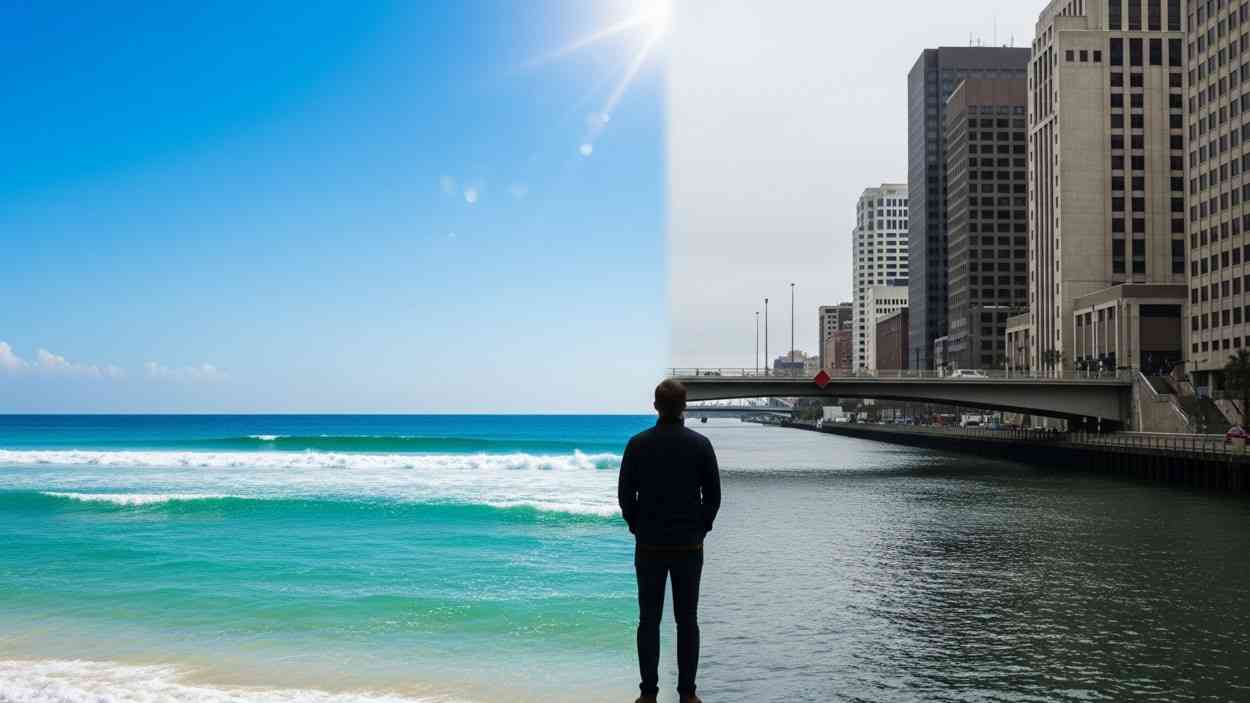Science
The Monk Who Saw the Future: Did an 11th-Century Benedictine Beat Astronomers?
17 February 2026

Living near water doesn’t always mean the same thing. New U.S. research reveals that coastal living can extend life by up to a year, while proximity to a river or lake may have the opposite effect. Why does one type of water support health, while another may shorten it?
Researchers at Ohio State University analyzed census data from over 66,000 records across the U.S. They compared life expectancy with proximity to different bodies of water. Their findings were published in the journal Environmental Research.
People living within 50 kilometers of an ocean, sea, or bay generally lived longer. Those in cities more than six kilometers from inland rivers or lakes had shorter lifespans.
“Our findings reveal a striking contrast between coastal and inland waters in their relationship to life expectancy. Coastal waters show a significant positive association with longevity, while inland waters are negatively linked. This difference stems from distinct environmental and socioeconomic factors. In particular, people living near coastal waters experience more moderate weather, fewer hot and cold days, lower maximum and average temperatures, and better air quality,” the study notes.
Coastal residents lived about a year longer than the U.S. average of 79 years. In contrast, city dwellers living near inland rivers or lakes had a shorter lifespan, around 78 years.
You might like to read: Bet Everything to Show Off. Jacek Piekara on Toxic Flaunting
Researchers identified several reasons why coastal areas promote longer life expectancy:
The most crucial factor was temperature differences: coastal zones face fewer extreme hot or cold days compared to inland water regions.
“We assumed that any form of ‘blue space’ might bring health benefits, and were surprised to discover such a sharp difference between those living near coastal versus inland waters,” explained Jianyong “Jamie” Wu, lead author of the study, in an interview with News.osu.edu.
The researchers emphasized that inland waters, such as rivers and lakes, are beneficial in rural areas but not in urban settings.
“Our study highlights the urban-rural divide in how blue spaces impact longevity. In cities, proximity to inland waters is negatively associated with life expectancy, while in rural areas it shows a positive link. By contrast, proximity to coastal waters consistently has a positive effect in both urban and rural environments,” the study concludes.
Read the original article: Bliskość wody decyduje o długowieczności. Morze i rzeka działają odwrotnie
Science
17 February 2026



Zmień tryb na ciemny